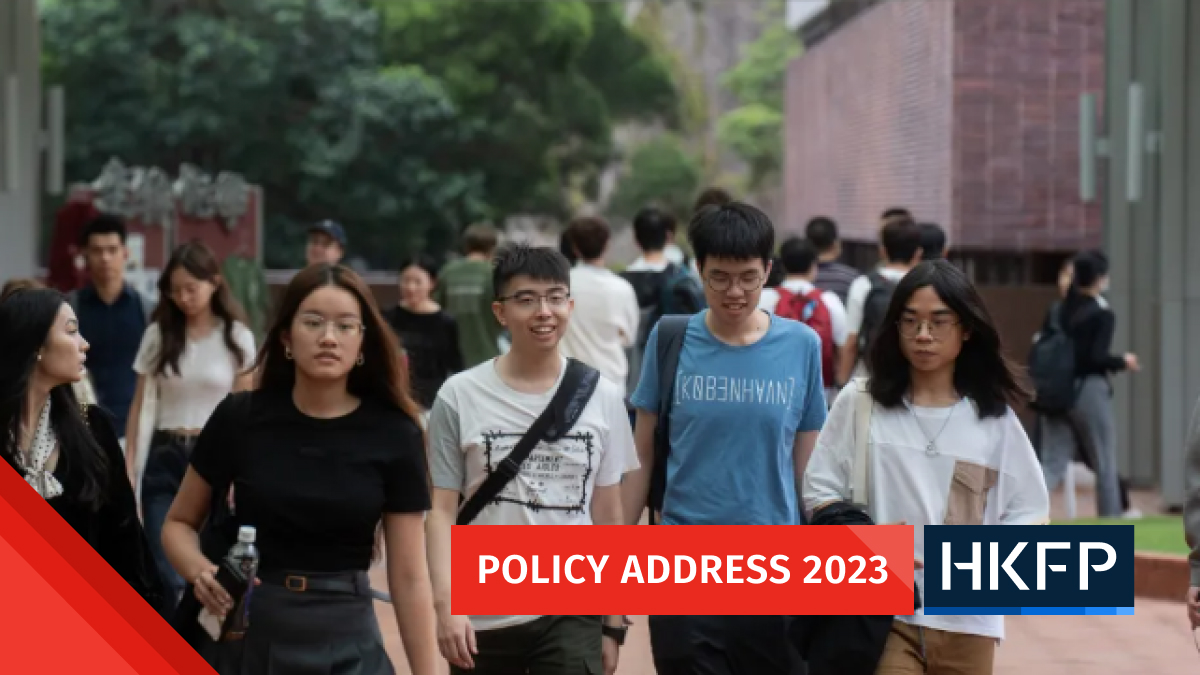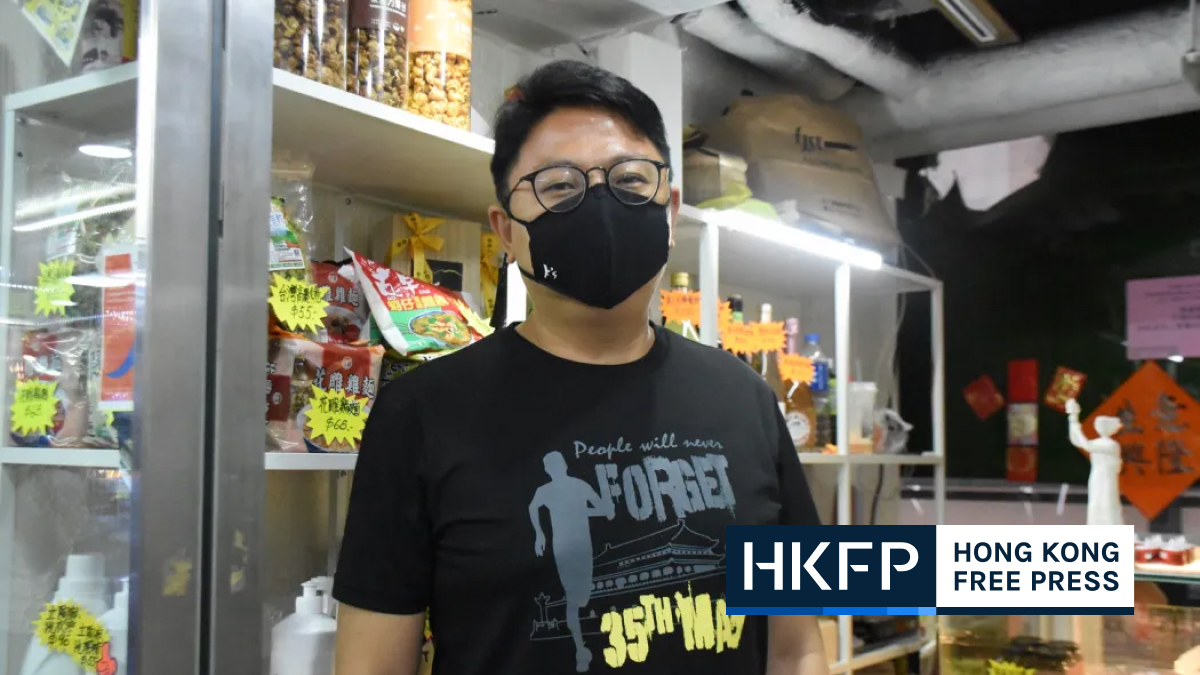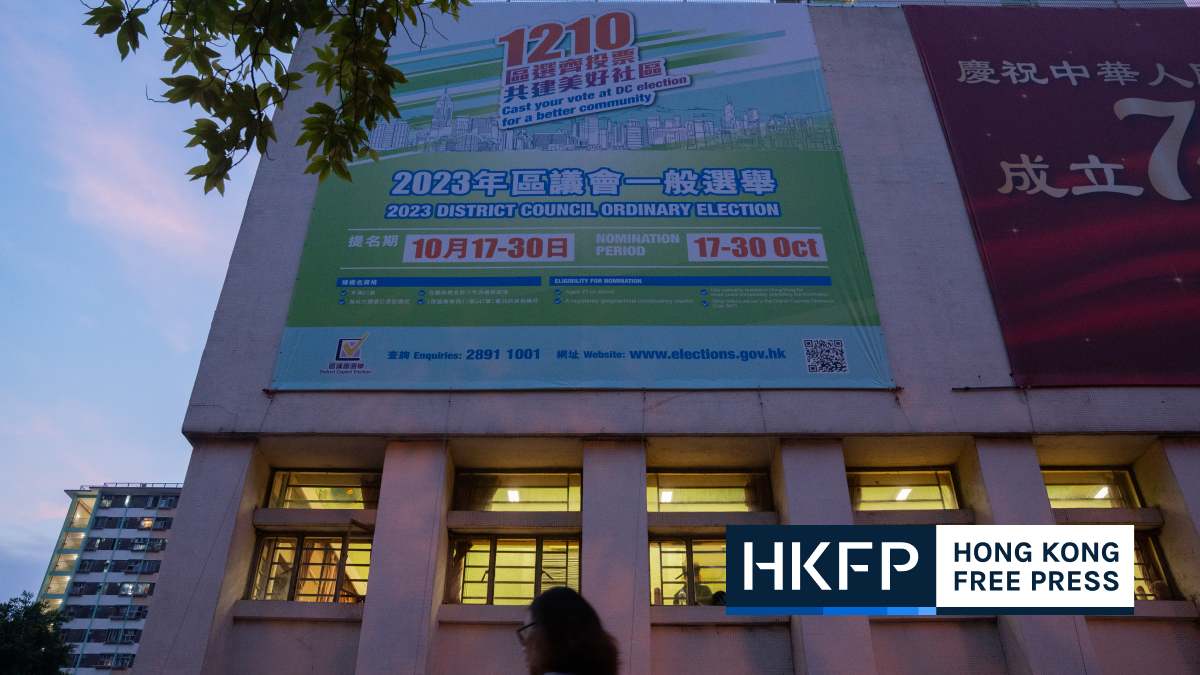Hong Kong’s largest pro-democracy party has endorsed eight candidates to run in the district council election in December, despite a major overhaul which slashed democratic representation. Stringent vetting mechanisms to ensure only “patriots” enter the municipal-level poll were enacted after democrats won a landslide victory in the last poll in 2019.
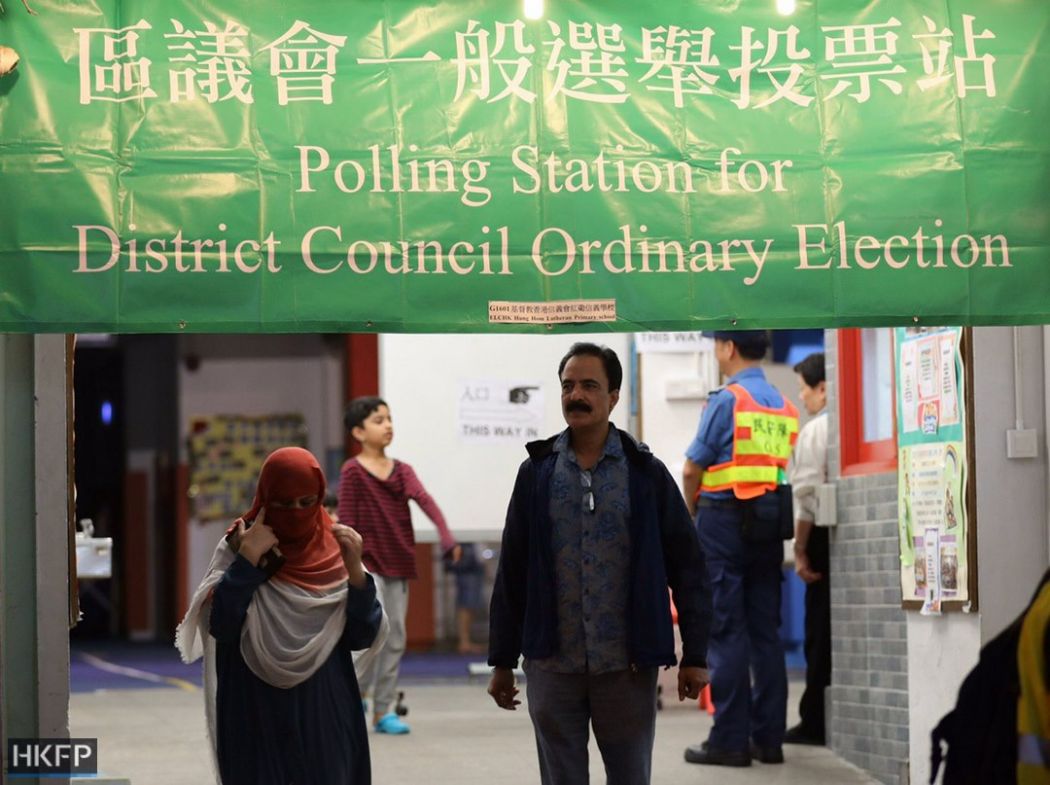
The Democratic Party was the first remaining opposition party in Hong Kong to officially endorse candidates for the revamped polls. Chairperson Lo Kin-hei said on Wednesday evening that the party would still be able to speak for Hongkongers by joining the election.
Incumbent district reps. among candidates
Lo said the party would recommend eight party members to run in the upcoming poll, including incumbent district councillors and ex-councillors, at a press conference after a meeting of core party members.
The names of the candidates would not yet be revealed, Lo said, citing concerns over triggering electoral expenses prematurely. But local media reported that the list included Lo and vice-chairperson Bonnie Ng, both resigned as district councillors in 2021 after an oath of allegiance requirement prompted an exodus of district councillors.
“We believe that, by joining the election and having an opportunity to be elected, we may still be able to speak for Hongkongers,” Lo said in Cantonese.
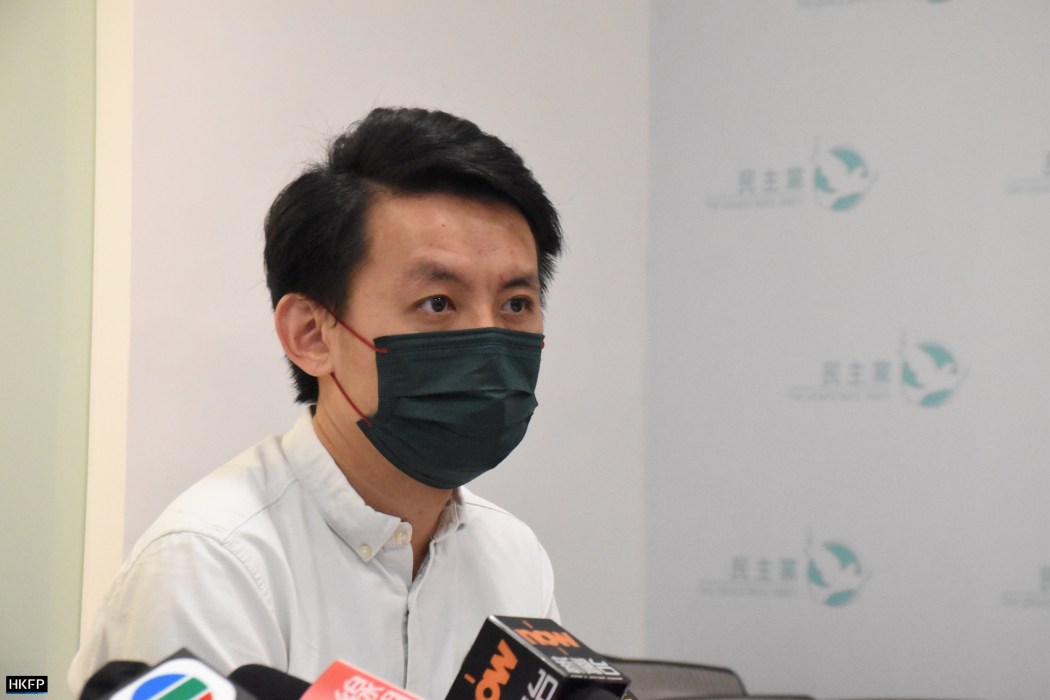
The candidates will begin seeking nominations from members of the “three committees” – the District Fight Crime Committees, District Fire Safety Committees and Area Committees – which will screen candidates under the new system. Lo added that the government was responsible for disclosing how those committee members could be reached.
In order to run in the upcoming poll, candidates must secure nine nominations from the three committees, which are dominated by pro-establishment figures.
Lo stated that the Democratic Party had upheld the principles of One Country, Two Systems. Whether the party could secure enough nominations was “beyond their control,” Lo added.
The final list of candidates could still change, Lo said.
In an op-ed published by Ming Pao on Thursday, Lo wrote in Chinese that the party would pursue political changes and hold the powerful accountable within the current institutional boundary: “We don’t believe Hong Kong as it is now is what Hongkongers want it to be.”
Election overhaul
All candidates will face stringent vetting mechanisms in the upcoming poll, after the city’s “patriot-only” legislature approved in July the government’s proposal to overhaul the race.
Under the new system, the number of seats chosen democratically by the public will be slashed to around 20 per cent, with the rest chosen by the city’s leader, government-appointed committees and officials. Previously, winners were selected via universal suffrage – the only such election of its kind in Hong Kong.
Constituency boundaries will be redrawn and each local council will be chaired by a government official, similar to colonial-era arrangements. All candidates will undergo national security vetting to ensure “patriotism.”
See also: Shifting Narratives: How the official attitude to Hong Kong’s District Councils changed
The electoral overhaul came after the pro-democracy camp won a landslide victory in 2019, and after Beijing imposed the national security law in 2020. It also comes after a similar overhaul of the legislature in 2021.
Western governments have criticised the electoral changes as posing serious questions over political freedom and pluralism in Hong Kong – views that the Hong Kong government objected to.
This month, the Democratic Party called off a fundraising dinner after repeated failed attempts to find a restaurant, with chairperson Lo claiming political pressure was exerted to impede their fundraising efforts.
Most prominent pro-democracy politicians are now behind bars, have fled the city, or have quit politics, with critics casting doubt over the legitimacy of the overhauled electoral systems.
Support HKFP | Policies & Ethics | Error/typo? | Contact Us | Newsletter | Transparency & Annual Report | Apps
Help safeguard press freedom & keep HKFP free for all readers by supporting our team

LATEST FROM HKFP
HKFP has an impartial stance, transparent funding, and balanced coverage guided by an Ethics Code and Corrections Policy.
Support press freedom & help us surpass 1,000 monthly Patrons: 100% independent, governed by an ethics code & not-for-profit.


